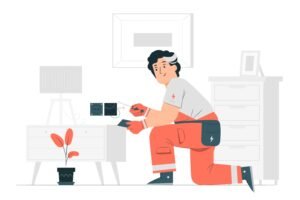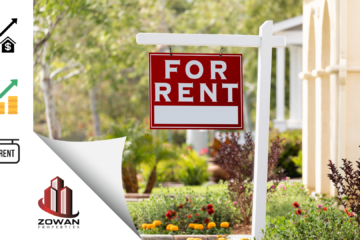Purchasing your first home is a monumental step, especially in a dynamic real estate market like Pakistan’s. Understanding the significance of this decision is crucial to embark on the journey of homeownership with confidence. This article provides the best tips for first-time homebuyers in Pakistan considering all the procedures and protocols involved.

Financial Preparedness
Before diving into the real estate market, assess your financial situation. Budget not only for the property’s cost but also for additional expenses such as taxes and legal fees. This financial preparedness sets the stage for a smoother homebuying process.
Researching the Real Estate Market
Begin by exploring various localities to find the one that aligns with your preferences and needs. Analyze property values and trends to make informed decisions about your investment. Being well-informed about the market ensures that you get the best value for your money.
If you are looking for real estate options in Bahria Town Karachi, read out article; The Ultimate Guide to Real Estate in Bahria Town Karachi, Pakistan.
Legalities and Documentation
Navigating through the legal aspects of homebuying can be complex. Familiarize yourself with the required documentation and legal requirements to streamline the process. Ensuring that you have all the necessary paperwork in order is essential for a seamless transaction.
Mortgage Options
Understanding the types of mortgages available is crucial. Research and compare mortgage rates to find the best option that suits your financial situation. This step is fundamental in securing a favorable deal that aligns with your long-term goals. Moreover, if you are an overseas Pakistani, you should check government’s Roshan Apna Ghar scheme that facilitates and provides mortgage for buying homes.
Home Inspection
Invest time and effort into thorough home inspections. Identifying potential issues beforehand can save you from unexpected expenses down the road. A meticulous inspection ensures that you are making a well-informed investment.
Negotiation Skills
Effective negotiation is an art, especially in the real estate domain. Equip yourself with negotiation strategies and be aware of common pitfalls. Negotiating successfully can result in a more favorable deal for your dream home.
Homebuying Assistance Programs
Explore government initiatives designed to assist first-time homebuyers. Subsidies and grants can significantly ease the financial burden. Take advantage of these programs to make your homebuying journey more affordable.
Choosing the Right Real Estate Agent
Selecting a reliable real estate agent is pivotal. Look for traits such as experience, transparency, and effective communication. Building a strong working relationship with your agent ensures a smoother homebuying process. Zowan Properties can be the best option to partner with in the home buying process. Reliable agents at Zowan Properties ensure that the home buying process is transparent, easy, and cost effective.
Property Value Appreciation
Consider the long-term aspects of your investment. Explore the potential for property value appreciation in the chosen area. Understanding the market dynamics helps you make informed decisions that benefit you in the future.
Home Maintenance Tips
Owning a home is not just about the initial purchase; it’s an ongoing commitment that requires attention and care. To ensure the longevity of your property and prevent unnecessary expenses, consider the following home maintenance tips:
1. Regular Inspections
Perform regular inspections of your home, both inside and outside. Check for signs of wear and tear, such as cracks in the walls, leaks in the roof, or issues with the foundation. Early detection allows you to address problems before they escalate into costly repairs.
2. HVAC System Maintenance
Heating, ventilation, and air conditioning (HVAC) systems are integral to your home’s comfort. Change air filters regularly, clean ducts, and schedule professional maintenance to keep the system running efficiently. This not only ensures a comfortable living environment but also contributes to energy savings.
3. Plumbing Checks
Inspect your plumbing system for leaks, clogs, or any signs of water damage. Fixing minor leaks promptly can prevent major issues down the line. Periodically check the water heater for sediment buildup, and flush it to maintain optimal performance.
4. Gutter Cleaning
Clean your gutters regularly, especially during the fall when leaves and debris can accumulate. Clogged gutters can lead to water damage, affecting your roof and foundation. Ensure that water flows freely to prevent potential issues.
5. Roof Maintenance
Inspect your roof for damaged or missing shingles. Addressing roofing issues promptly is crucial in preventing water leaks and structural damage. Consider professional inspections, especially after severe weather conditions.
6. Pest Control
Implement proactive pest control measures to prevent infestations. Seal cracks, eliminate standing water, and schedule regular pest inspections. Early intervention is key to avoiding significant damage caused by pests.
7. Exterior Paint and Siding
Regularly inspect the exterior paint and siding of your home. Repaint or touch up areas that show signs of peeling or chipping. Proper maintenance not only enhances curb appeal but also protects your home from the elements.
8. Window and Door Maintenance
Check windows and doors for drafts, leaks, or malfunctioning seals. Replace weather stripping as needed and ensure that windows and doors close tightly. Properly sealed openings contribute to energy efficiency and climate control.
9. Electrical System Checks
Inspect your electrical system for any signs of wear, such as frayed wires or malfunctioning outlets. Address electrical issues promptly to prevent safety hazards. Consider hiring a professional electrician for thorough inspections.
10. Landscaping and Yard Care
Maintain your landscaping to enhance the overall appearance of your property. Trim trees and bushes, mow the lawn regularly, and address any issues with irrigation systems. A well-kept yard not only adds aesthetic value but also contributes to the overall health of your property.
11. Foundation Inspection
Regularly inspect the foundation for cracks or shifts. Any issues with the foundation can have serious consequences for the structural integrity of your home. Promptly address foundation problems to avoid costly repairs.
12. Smoke and Carbon Monoxide Detectors
Ensure that smoke and carbon monoxide detectors are in working order. Replace batteries regularly and test the alarms to guarantee the safety of your household.
13. Attic and Basement Maintenance
Check the attic and basement for signs of leaks, mold, or pests. Proper insulation and ventilation are crucial for maintaining a healthy indoor environment. Address any issues to prevent long-term damage.
14. Appliance Maintenance
Regularly service and maintain household appliances. Clean filters, check for leaks, and follow manufacturer guidelines for maintenance. Well-maintained appliances operate more efficiently and have a longer lifespan.
15. Emergency Preparedness
Create an emergency preparedness plan for your household. Ensure that everyone knows evacuation routes and emergency contacts. Keep essential supplies, such as flashlights and first aid kits, readily available.
Transitioning to Homeownership
Settling into your new home involves more than unpacking boxes. Establish a sense of community by getting to know your neighbors and engaging in local activities. This transition is an exciting phase of your homeownership journey.
Common Pitfalls to Avoid
Learn from the mistakes of others to safeguard against potential issues. Common pitfalls include overlooking legal details, rushing the decision-making process, and neglecting thorough inspections. Awareness is key to a successful homebuying experience.
Staying Informed on Market Trends
The real estate market is dynamic, with trends and developments constantly evolving. Stay informed on market trends to adapt to fluctuations and make informed decisions. Ongoing awareness positions you as a savvy homeowner.
Conclusion
Reflect on the journey of homebuying as a significant milestone. Celebrate the achievement and use the experience to encourage others who are embarking on their homeownership journey. The key is to remain informed, adaptable, and proactive.
FAQs
Q1. What is the first step in preparing to buy a home in Pakistan?
Assess your financial situation and budget for all associated costs.
Q2. How can I avoid common pitfalls in the homebuying process?
Learn from the mistakes of others, stay informed, and take your time in decision-making.
Q3. Are there government programs to assist first-time homebuyers in Pakistan?
Yes, explore subsidies and grants designed to make homeownership more affordable.
Q4. Why is home inspection crucial before making a purchase?
Thorough inspections help identify potential issues, saving you from unexpected expenses.
Q5. What are some long-term considerations for property value appreciation?
Explore emerging areas and market dynamics to gauge the potential for appreciation.




0 Comments